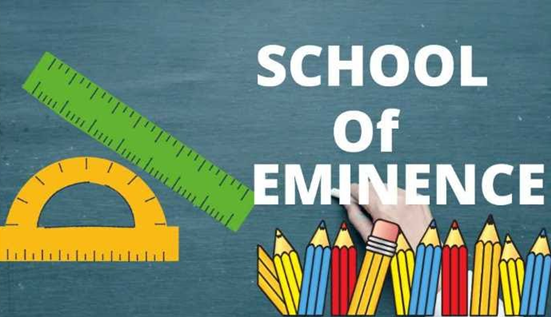Introduction
The School of Eminence (SoE) initiative is a groundbreaking step taken by the Government of Punjab, India, to revolutionize the state’s public education system. Launched in 2023, this initiative aims to uplift government schools to meet international standards, focusing not just on academic excellence, but also on holistic development. The primary goal is to provide students from underprivileged backgrounds with the same opportunities and facilities as those available in private institutions.
What Is a School of Eminence?
A School of Eminence is a government school that has been transformed with upgraded infrastructure, modern teaching methodologies, and a strong focus on preparing students for future careers. These schools cater to students from grades 9 to 12 and emphasize critical thinking, innovation, and skill development.
The Punjab government identified around 117 existing government schools and chose them for upgrades under this program in the first phase. The selection team based their choices on student population, infrastructure potential, and accessibility.
Key Features of the SoE Initiative
-
Modern Infrastructure
The SoE program includes revamped classrooms, smart boards, science and computer labs, libraries, clean drinking water, clean washrooms, and sports facilities. The aim is to create a school environment that is inviting and conducive to learning. -
Focus on Career Guidance
Each School of Eminence includes a Career Guidance Centre, where students receive mentorship and counseling for a variety of career paths — from engineering and medicine to entrepreneurship and arts. This guidance starts early, helping students make informed decisions about their futures. -
Holistic Development
Teachers encourage students to participate in extracurricular activities such as sports, music, drama, and public speaking. Counselors and educators also address emotional well-being through life skills training and psychological counseling. -
English Language Proficiency
To prepare students for global opportunities, English language skills are given special attention. This includes spoken English classes, digital literacy programs, and teacher training. -
STEM and Innovation
Administrators equip schools with STEM (Science, Technology, Engineering, and Math) labs, where teachers encourage students to engage in hands-on learning, robotics, and innovation projects. -
Collaboration with Experts
The government has partnered with education experts, NGOs, and international organizations to ensure that educators and administrators adopt best practices in teaching and administration.
Impact on Students and Society
The SoE initiative aims to reduce the educational gap between public and private schools. With improved quality of education and better infrastructure, students from low-income families now have access to resources that were previously out of reach. Early reports have shown improved attendance, better exam results, and increased student confidence.
This reform also creates a ripple effect—raising the overall standard of education in the state and building a future-ready youth population that can contribute positively to the economy and society.
Conclusion
The School of Eminence initiative is more than just an upgrade to buildings and classrooms; it’s a shift in mindset. By focusing on quality, equity, and innovation, Punjab’s government is setting a strong example of how public education can be transformed. If executed effectively, this model could inspire other states in India—and even other countries—to rethink their approach to education reform.

